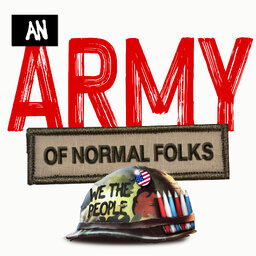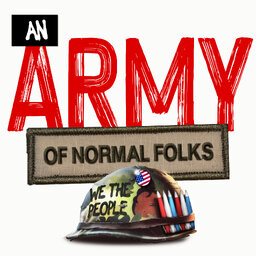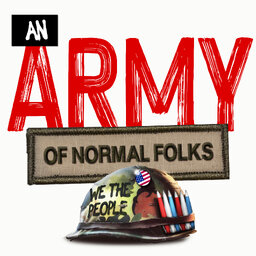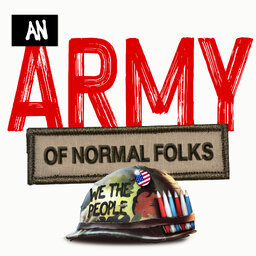Kim Emch: The Only 3 Generation Family ESL Program (Pt 2)
When Kim found out that thousands of kids in her suburban community were going hungry in the summer, she couldn’t look away from the problem. Her nonprofit Festa now feeds over 800 children in the summer, but as Kim puts it, they don’t just want to help people live in poverty a little bit better. So they serve 1,166 people with America's only 3-generation family English as a Second Language program, to help their families escape poverty .
In 1 playlist(s)
An Army of Normal Folks
Our country’s problems will never be solved by a bunch of fancy people in nice suits talking big wor…Social links
Follow podcast
Recent clips

What Happens When You See the Person Everyone Else Ignores
13:15

How to Turn Your Spending Into Someone's Second Chance. Or First Chance (Pt 1)
33:45

How to Turn Your Spending Into Someone's Second Chance. Or First Chance (Pt 2)
1:14:58
 An Army of Normal Folks
An Army of Normal Folks